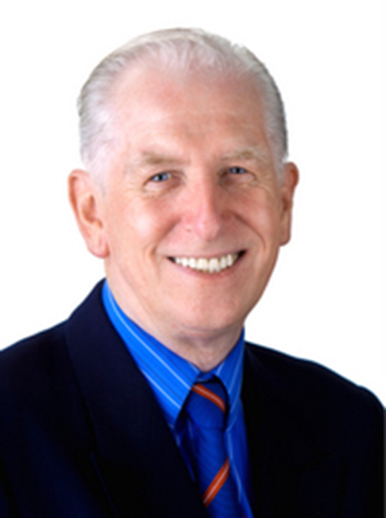By Dr Charles Margerison
Psychologist
 In discussion with my grandchildren, who are aged between 15 and 18 years, the topic of jobs and careers came up. They know that in my career, as a psychologist, I have studied the lives of over 500 amazing achievers, as reflected in the books I have written.
In discussion with my grandchildren, who are aged between 15 and 18 years, the topic of jobs and careers came up. They know that in my career, as a psychologist, I have studied the lives of over 500 amazing achievers, as reflected in the books I have written.
One of my grandsons is clear that he wants to be an engineer. In contrast, one of my granddaughters, who is a couple of years younger is not sure, but is interested in science. Another grandson said he wanted to travel and gain experience before deciding on a career.
In short, the discussion revolved around the question of who they want to be, in terms of roles, jobs and careers, in the next phases of their lives.
‘Did I have any advice?’ one of them enquired.
I said it was useful to look at the choices made by people who made major contributions to music, technology, business, medicine, science, art and other key areas. By doing so, they could identify important factors they could focus upon.
‘What kind of factors? asked my grandson. So, the following are examples.
Purpose – Those who made major achievements identified a purpose they felt was important. Thomas Barnardo is known for providing homes for children in need. It all started by accident when a young student of his said he did not have a home. Barnardo had discovered a key purpose, and worked tirelessly to help homeless children. His purpose was the beacon to his future
Preferences – Many who have made outstanding achievements followed their interests and hobbies to create careers. Artists, such Picasso and Van Gogh, did not want a conventional job. They identified their preferences for different kinds of art. Even entrepreneurs, like Edison and Carnegie, who started in regular wage-based jobs, found ways of following their real preferences. They designed their future around their interests.
Principles – Various people built their careers on the basis of strong principles. Politicians like Nelson Mandela, who served 27 years in prisons, held to his principles. He became President of South Africa. Mother Theresa followed her religious principles to establish places of refuge and learning for the poor. Their future was built on their principles.
Proactivity – Those who made their mark on the world had what I call the ‘can do spirit.’ Having identified what was going to be important in their future, they were proactive, rather than reactive. They took the initiative to find the people who could help them, as well as finding the money and the time. They did not wait for others to give them permission. They chose the priorities and pursued them.
 In all the above examples, and others drawn from the lives of amazing people, the importance of visualising their future self was important. To achieve everything of importance requires time. Therefore, students can learn how to create their future self.
In all the above examples, and others drawn from the lives of amazing people, the importance of visualising their future self was important. To achieve everything of importance requires time. Therefore, students can learn how to create their future self.
They can learn from the lives of amazing people, that there are likely to be many ups and downs along the way.
By studying the psychology of ‘future self’, based on the life stories of amazing people, students can gain not only the principles, but the required practices, in order to succeed. They will note the determination and persistence that amazing people exhibited. They will see how they converted ideas into applications. They will observe the way amazing people developed teams and involved others.
Above all, they will see the importance of learning from action, rather than just lectures, books, computers and articles. Experience is the greatest tutor. We have designed a website that is now used by over 100,000 students to identify their character strengths and preferences. This is at – www.amazingpeopleschools.com .
The questions posed by my grandchildren are those from which we can all learn. As a starting point, it is useful to look at one’s purposes, preferences, principles and proactive priorities. These are strong start points. Combined with experience, and the ability to adapt to circumstances, young people will find roles they either enjoy or dislike. Having guidelines derived from amazing people, who made important choices, provides a fascinating and engaging basis for discussing careers.

Dr Charles Margerison, President and founder of Amazing People Worldwide, is a Psychologist. He is also President of Amazing People Schools. Dr Margerison has consulted widely for major organizations in the fields of organizational and educational psychology. He was previously Professor of Management at Cranfield University, UK, and the University of Queensland, Australia. He founded Amazing People Worldwide in 2006 and is supported by a dedicated global team. He previously co-founded Emerald Publications, and Team Management Systems and has authored more than 30 books. Dr Charles is also the creator of ‘Can Do Kids Worldwide, a virtual music group that helps students to learn about countries and cultures through music. He has also developed Imagineland, for early learners. You can follow him on Linked in .
For more information, please email info@amazingpeopleworldwide.com
Websites:



Copyright © 2021. Amazing People Worldwide.
All Rights Reserved.
This site is protected by reCAPTCHA and the Google
Privacy Policy and Terms of Service apply.



